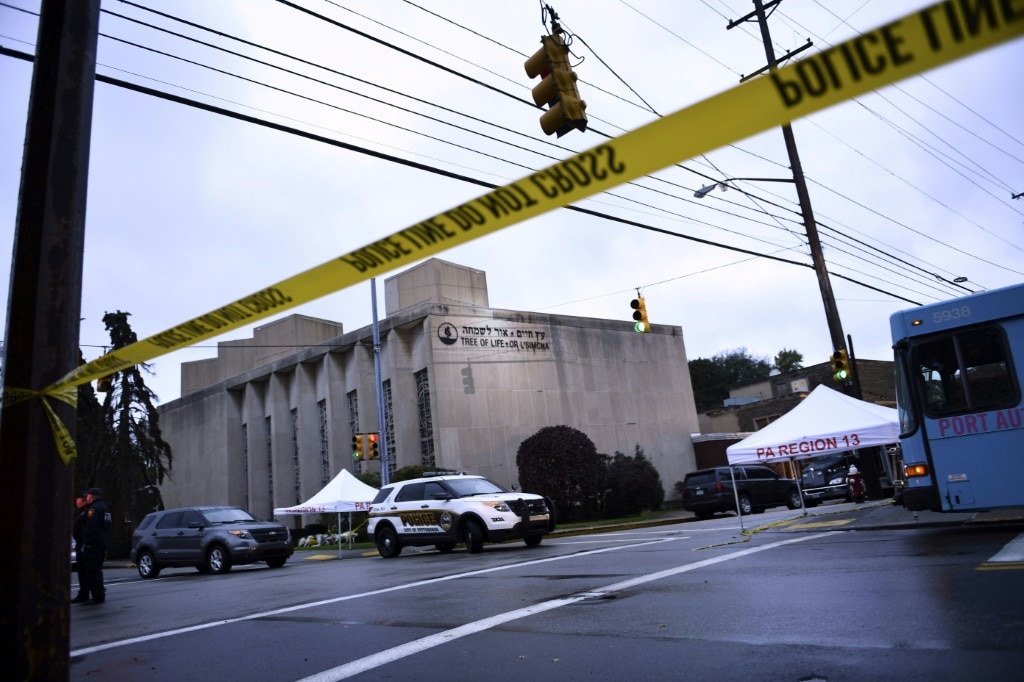US shooter sentenced to death for 2018 synagogue massacre
US shooter sentenced to death for 2018 synagogue massacre

An American truck driver was sentenced to death on Wednesday for massacring 11 Jewish worshippers five years ago in the deadliest anti-Semitic attack in US history.
The 12-member jury unanimously ruled that Robert Bowers should be executed for the October 27, 2018 mass shooting in Pittsburgh.
President Joe Biden's Justice Department has put a moratorium on federal executions, however, meaning it is not clear whether the sentence will ever be carried out on Bowers.
The 50-year-old was found guilty in June of all 63 charges leveled against him, including hate crimes resulting in murder and attempted murder.
Bowers methodically tracked down his victims at Pittsburgh's Tree of Life synagogue, shooting many times from close range as he yelled "All Jews must die!
The massacre compounded fears of a resurgence of far-right extremists and neo-Nazis across the United States.
"Hate crimes like this one inflict irreparable pain on individual victims and their loved ones and lead entire communities to question their very belonging," said Attorney General Merrick Garland, reacting to the sentence.
"All Americans deserve to live free from the fear of hate-fueled violence and the Justice Department will hold accountable those who perpetrate such acts," he added.
Bowers, who had an AR-15 semiautomatic assault rifle and three Glock handguns, carried out the slayings during Shabbat -- the Jewish day of rest. He had expressed strong anti-Semitic views online.
He was arrested at the scene of the attack, which left several police officers and two additional worshippers with non-fatal wounds.
Donald Trump, then the US president, called for Bowers to receive the death penalty, which federal prosecutors formally requested in August 2019.
Wednesday's verdict marks the first time federal prosecutors have sought and won a death sentence during Biden's presidency.
The federal government has not, however, carried out any executions since he came to power in January 2021.
Garland imposed a moratorium on executions in July 2021 after the Trump administration oversaw a record 13 executions in its final months.
For Bowers to be executed, the moratorium would need to be lifted or a new president come to power.
Bowers did not dispute that he had shot the congregants but he argued that he had not been motivated by a hatred of Jewish people.
His defense team claimed that he suffered from schizophrenia and had offered a guilty plea in exchange for life in prison, which was rejected by the prosecution.
- 'Cold-blooded hater' -
Jewish organizations welcomed the verdict.
Michael Masters, chief executive of the Secure Community Network, which provides security advice to American Jewish institutions, said the sentence was "another step on the path to justice."
It "sends a message to violent extremists, terrorists, and antisemites everywhere that the United States will not tolerate hate and violence against the Jewish people, nor any people of faith," he added in a statement.
The American Jewish Committee said that "what should always be top of mind is the memory" of the victims murdered by "a cold-blooded hater of Jews."
"Ultimately what is of most significance is not how the shooter will spend the end of his life, but the fact that the US government pursued this case with vigor and demonstrated that such crimes will not be countenanced, excused, or minimized," it said.
Bowers' trial opened in late April and came amid a rising number of anti-Semitic incidents in the United States, according to the Anti-Defamation League.
In 2022, the US-based Jewish group registered 3,697 acts of harassment, vandalism and assault, a 36 percent increase over the prior year and the highest since it began keeping records in 1979.
The United States is home to around six million Jewish people, according to a 2021 Pew Research Center study.
pdh/st



